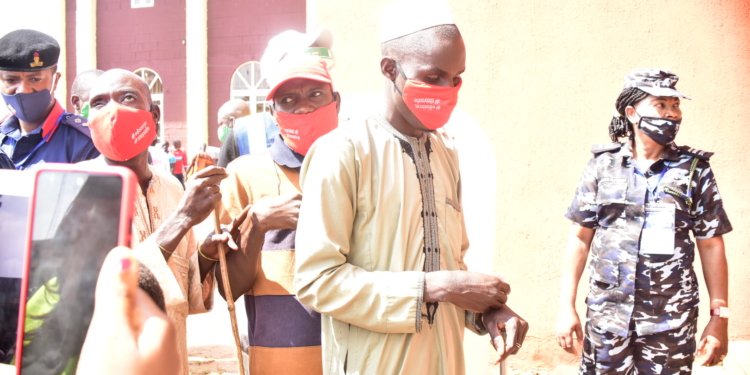The recently concluded election in Edo State, which saw the incumbent governor, Godwin Obaseki, emerged as winner had a rich participation of Persons with Disabilities, PWDs across the state.
Before the election, the Independent National Electoral Commission had promised that PWDs would be able to exercise their franchise as the commission will provide assistive materials such as Braille Ballot Guide (BBG), magnifying glasses and posters at PUs in enough quantities.
Filled with hope and expectations to have a say in the electoral process, PWDs endured all odds and trooped out to their respective polling units to vote for who they want to pilot the affairs of Edo State for the next four years.
As promised by INEC, during the election process PWDs were given priority to vote ahead of other voters.
However, the process wasn’t perfect as some PWDs voted while faulty smart card readers disenfranchised others.
At Ibiwe, Oba Market Premises 2, Oredo LGA, a PWD who also served as party agent, voted first and stood by to ensure his party wasn’t cheated.
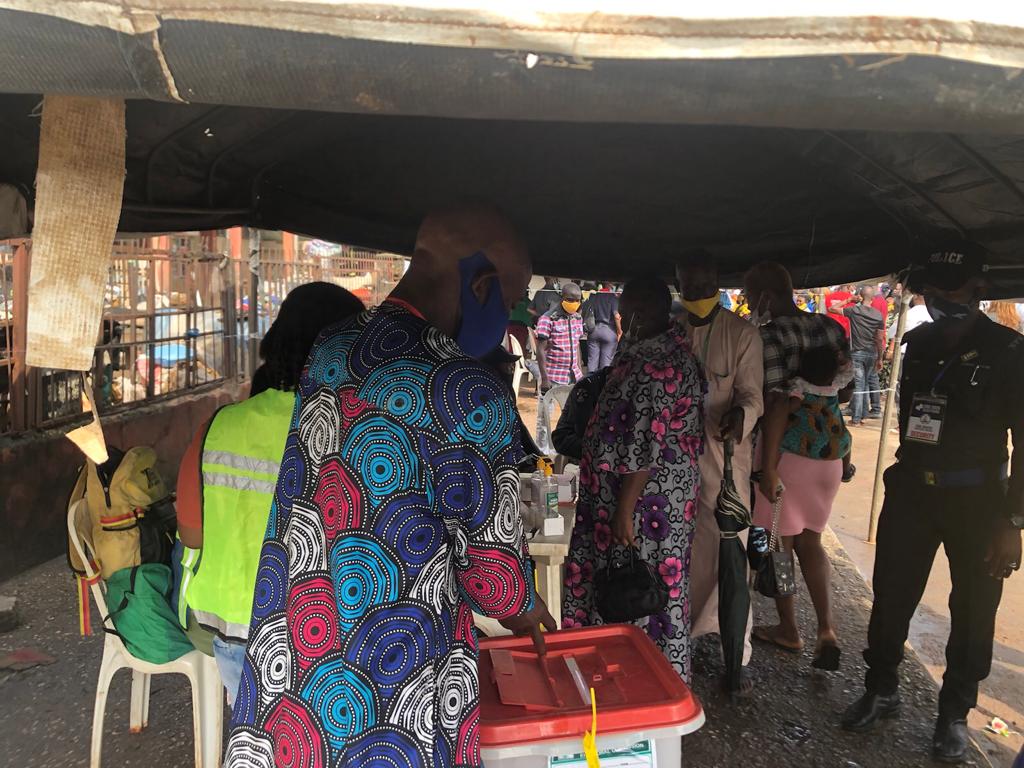
Contrariwise, Mr Chike (pseudonym), a man with mobility challenge, was unable to cast his vote when he arrived at his polling unit at Emokpea Primary School.
The presiding officer who oversaw the accreditation process informed him that the card reader could not read his PVC.
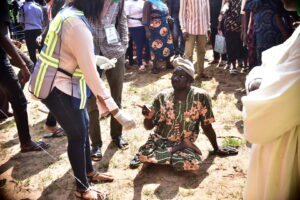
Frustrated by the inability to vote, he blamed the electoral commission saying “this is my polling unit and this is where I usually vote. I don’t know why the card reader is not reading my card.”
After waiting in the scorching sun with the hope of finding a solution, Chike left the polling unit.
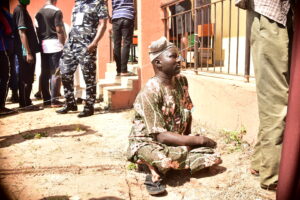
At the same PU, two blind men were able to cast their votes after being presented with braille ballot guide, which enabled them to vote without assistance from an external party.
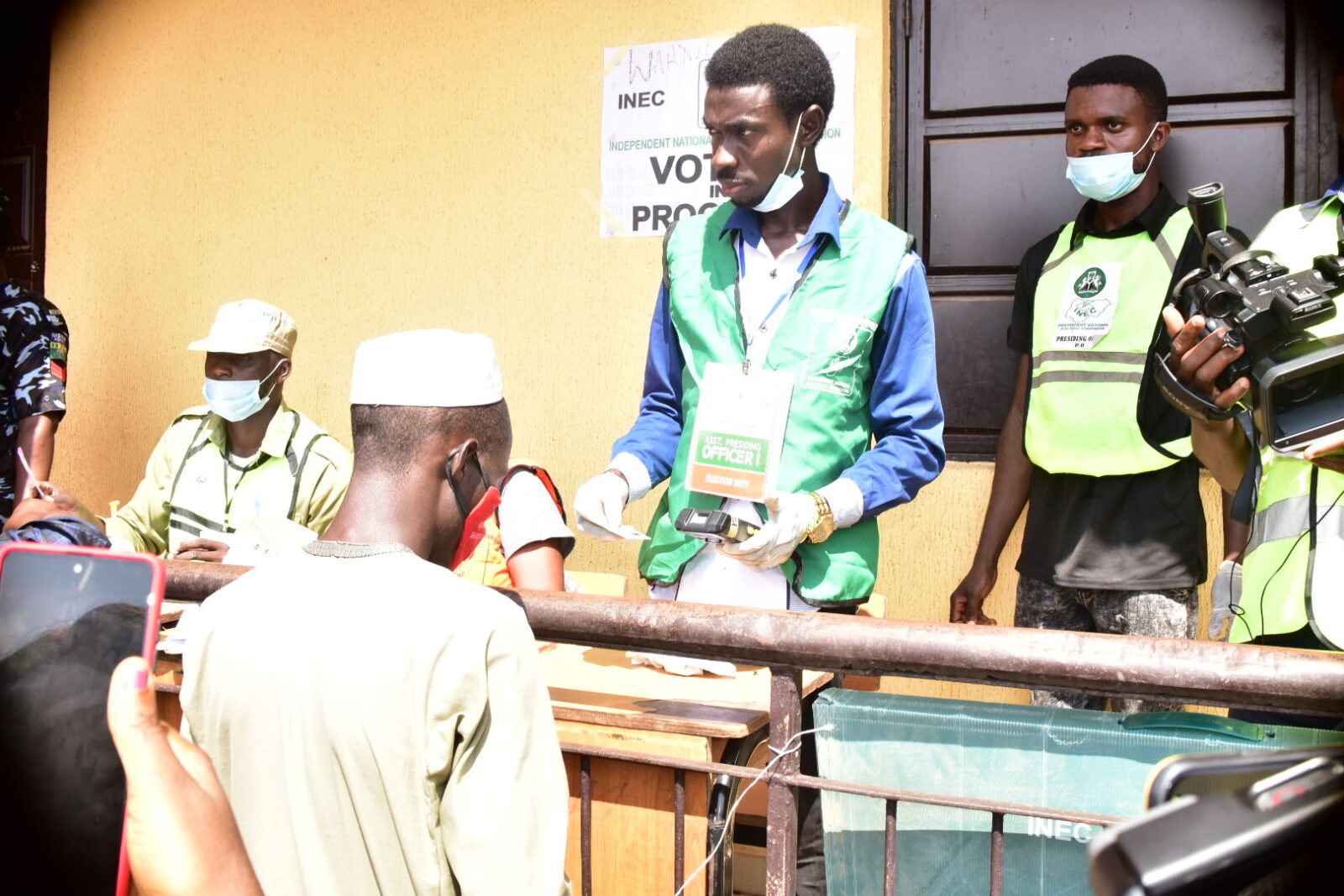
At Amegor Primary School, Uwelu community, Egor LGA, a man with physical disability who uses crutches explained how he trekked a long distance to the polling unit for him to exercise his franchise.
He expressed his happiness to partake in the electoral process saying being disabled should not disenfranchise anyone.
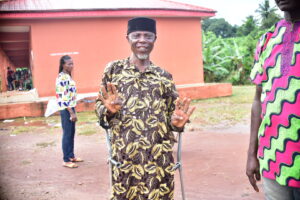
“I believe that with or without my disability, I should be able to make my voice heard by participating in the elections.
“I can’t say because I have a disability, then I fold my hands and sit at home when others are voting. If I don’t take any step to elect the person I want in position, I won’t be able to demand for my rights,” he said.
He also commended the INEC officials at his polling unit for giving him priority, which made it easy for him to vote as soon as he got to the polling unit.
“The INEC officials didn’t allow me to stay on the queue for too long, I was able to cast my vote as soon as I got to the polling unit and it is quite encouraging,” he added.
Assessment of PWDs’ Participation By Monitoring Groups
Yiaga Africa reported that 38% of the polling units (245 of 250 PUs monitored) had Braille ballot guide for visually impaired voters.
In an assessment conducted by Inclusive Friends Association, a Disabled Peoples Organization, the group commended the high turnout of PWDs at the election.
The group said PWDs could be seen to have participated and given priority at most polling units monitored.
Inclusive Friends Association, IFA, however, said that the commission did not consider PWDs when planning the election saying “Braille Ballot Guide was deployed to very few polling units and it does not show a good representation of inclusiveness for the PWD clusters that are visually impaired.”
Earlier in an interview with Grace Jerry, Executive Director, IFA, she revealed that the Independent National Electoral Commission had made adequate provision to enable participation of PWDs during the elections.
Jerry however raised her concerns that the deployment of the materials across the state could be delayed and thereafter affect the participation of PWDs at the polls.
PWDs Celebrate Re-election of Obaseki
After the declaration of Governor Godwin Obaseki as the winner at the polls, different persons gathered together at major roundabouts to express their excitement about the results of the election.
At Ringroad, Deaf citizens were seen expressing their excitements by raising two hands with the four fingers raised and the thumb crossing the palm, an expression that ‘Obaseki will complete two terms.’
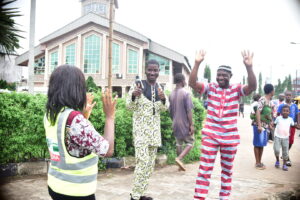
Communicating in sign language, one of the Deaf persons, Egbon Sunday noted that he is excited that his vote counted and the governor has been re-elected.
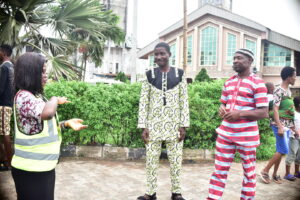
Also, at Ramat Roundabout, a man on wheelchair was seen among the crowd expressing his excitement about the reelection of Godwin Obaseki.

